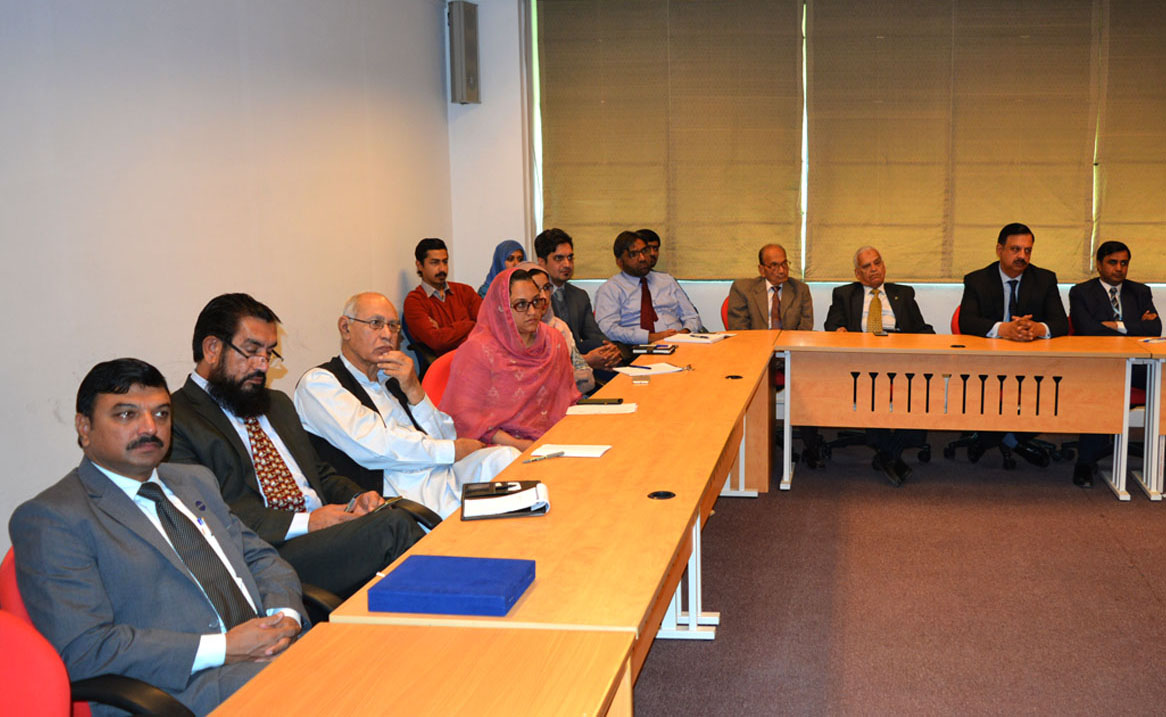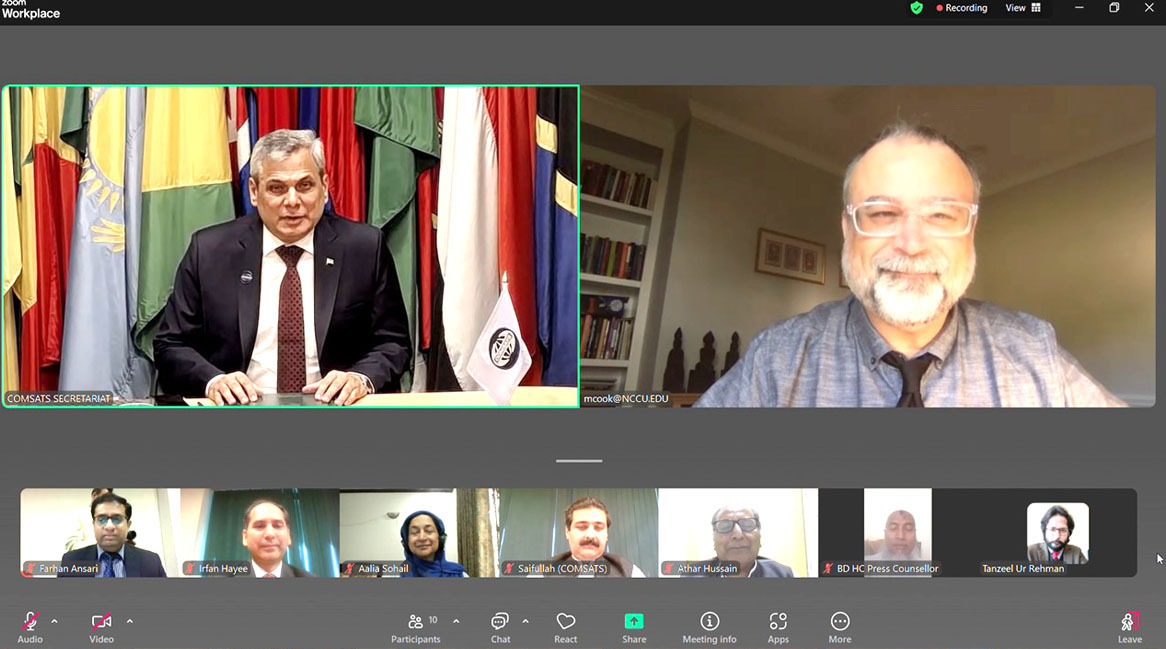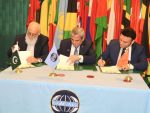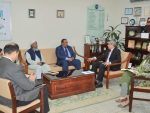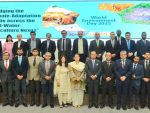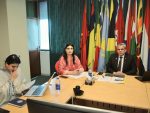A presentation was made by Economic Advisor, Federal SDGs Support Unit, Ministry of Planning, Development and Reform, Government of Pakistan, Mr. Ali Kemal, at COMSATS Secretariat on November 7, 2018. The presentation was arranged with a view to strengthen the capacity of COMSATS’ officials for understanding challenges and opportunities including SDGs in developmental agenda of developing countries, with especial reference to Pakistan.
In his interactive presentation, Mr. Kemal informed that Pakistan adopted t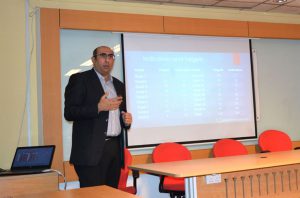 he SDGs in its parliament very early after their launch in 2015 and has since been aligning its strategies and programmes with the goals. He made a comprehensive review of all seventeen SDGs and observed that these goals are more multidisciplinary and qualitative on comparison with the MDGs.
he SDGs in its parliament very early after their launch in 2015 and has since been aligning its strategies and programmes with the goals. He made a comprehensive review of all seventeen SDGs and observed that these goals are more multidisciplinary and qualitative on comparison with the MDGs.
Informing the participants about Pakistan standing with regard to SDG, he informed that there is a lot that remains desirable to achieve for SDG 7, as most of the energy produced and used in the country is neither clean nor very affordable. He also noted the lack of resilience in the infrastructure. He highlighted the lack of innovation in the country in general and quoted China as an example to follow, with figures of 400,000 new entrepreneurs each year. He noted that stats in this regard could improve with private sector investment to promote and sustain innovation.
For sustainable societies, Mr. Kemal noted with concern the absence of ne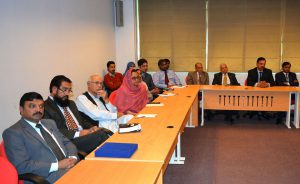 cessary intellectual thrust. He suggested that procedural changes in project planning at government end are crucial to build necessary thrust.
cessary intellectual thrust. He suggested that procedural changes in project planning at government end are crucial to build necessary thrust.
“25% of the world’s hunger can be dealt with by only checking the food losses around the globe”, informed Mr. Kemal while delineating on the SDG on responsible production and consumption. He underscored that this SDG affects all three pillars of sustainable development, as ability to achieve responsible production and consumption has direct impact on society, economy and environment.
Mr. Kemal considered the SDG 16 as having an overarching importance for achievement of all other SDGs. He noted that good governance and his international approach is of grace procedur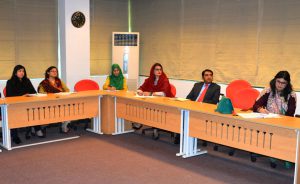 al importance to support actions for all other SDGs. This is greatly because of the inter dependence of these actions and their impact. Efforts under SDG 17 could further augment relevant efforts by creating partnerships that are ‘inclusive, sustainable and equitable’. For sustainability, again, Mr. Kemal considered it important to have stronger institutions.
al importance to support actions for all other SDGs. This is greatly because of the inter dependence of these actions and their impact. Efforts under SDG 17 could further augment relevant efforts by creating partnerships that are ‘inclusive, sustainable and equitable’. For sustainability, again, Mr. Kemal considered it important to have stronger institutions.
In context of Pakistan, Mr. Kemal informed that early adoption of these goals enabled their integration in the country’s future strategy, the vision 2025 was aligned with SDGs. Mr. Kemal informed that targets under these goals can be indigenized , however , their reporting would be done based on the internationally recognized indicators. He indicated that due monitoring and evaluation of the targets needs to be done to access achievement of the goals. Mr. Kamal also highlighted some parameters that would be useful in gauging effectiveness of initiative taken under SDGs.
The presentation was rounded off with relevant questions and answers, and discussion on various aspects of the presentation.

